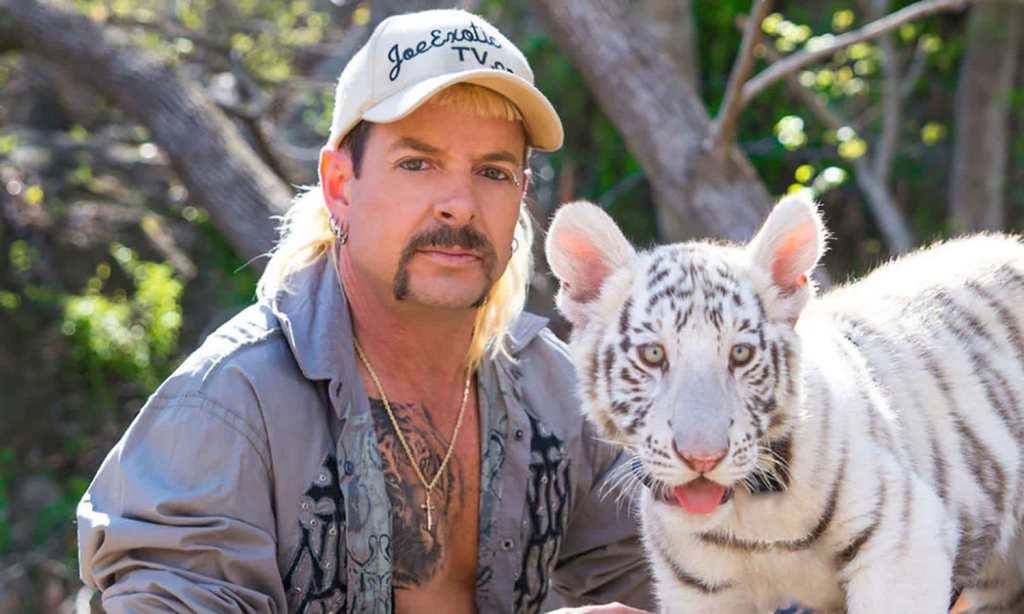WARNING: This article contains information about sexual assault which may be triggering to survivors.
It’s hard to believe that the Tiger King phenomenon was six months ago and counting but interest in the lives of the wacky characters is still at an all-time high.
Joe Exotic a.k.a Joseph Maldonado Passage was arguably one of the most intriguing personalities from the series — with his wild hair, polyamorous marriages and his unique songs and video clips.
Even though he is currently serving a 22-year prison sentence for hiring a hitman to take out his arch-nemesis, Carole Baskin, it hasn’t stopped him from doing a tell-all interview, opening up about his traumatic childhood.
In a new documentary, the 57-year-old is set to tell all about how he was repeatedly raped at the age of five and treated as the “hired help” by his parents.
The documentary, Joe Exotic Before He Was King will be released on the International Discovery Network in the U.S and will also talk about how Maldonado-Passage held his first husband in his arms while he died of AIDS.
UK outlet, The Sun, released an exclusive preview of the series, which shows him talk about his upbringing in Kansas and how his parents disliked him being openly gay. He will also open up about how he attempted suicide and the repercussions of when his brother Garold died.
“When you deal with and you have dealt with as much death as I have, whether it’s my brother, my ex-husband, the animals that you fall in love with, you build this wall.”
After feeling like the humans around him “failed him”, Maldonado-Passage turned to animals for emotional support.
“I lay in bed at night and I hurt so bad and I am just so in my own little world. And not the animals, the people in this world will eat you up and spit you out.”
The never-before-seen footage will feature interviews with the former zookeeper, personal photos and home movies.
The show will premiere on Monday, September 28 with an Australian release to be confirmed.
If you or someone you know is experiencing sexual or physical violence, please call 1800-RESPECT, a national telephone support line or find more support services HERE.







